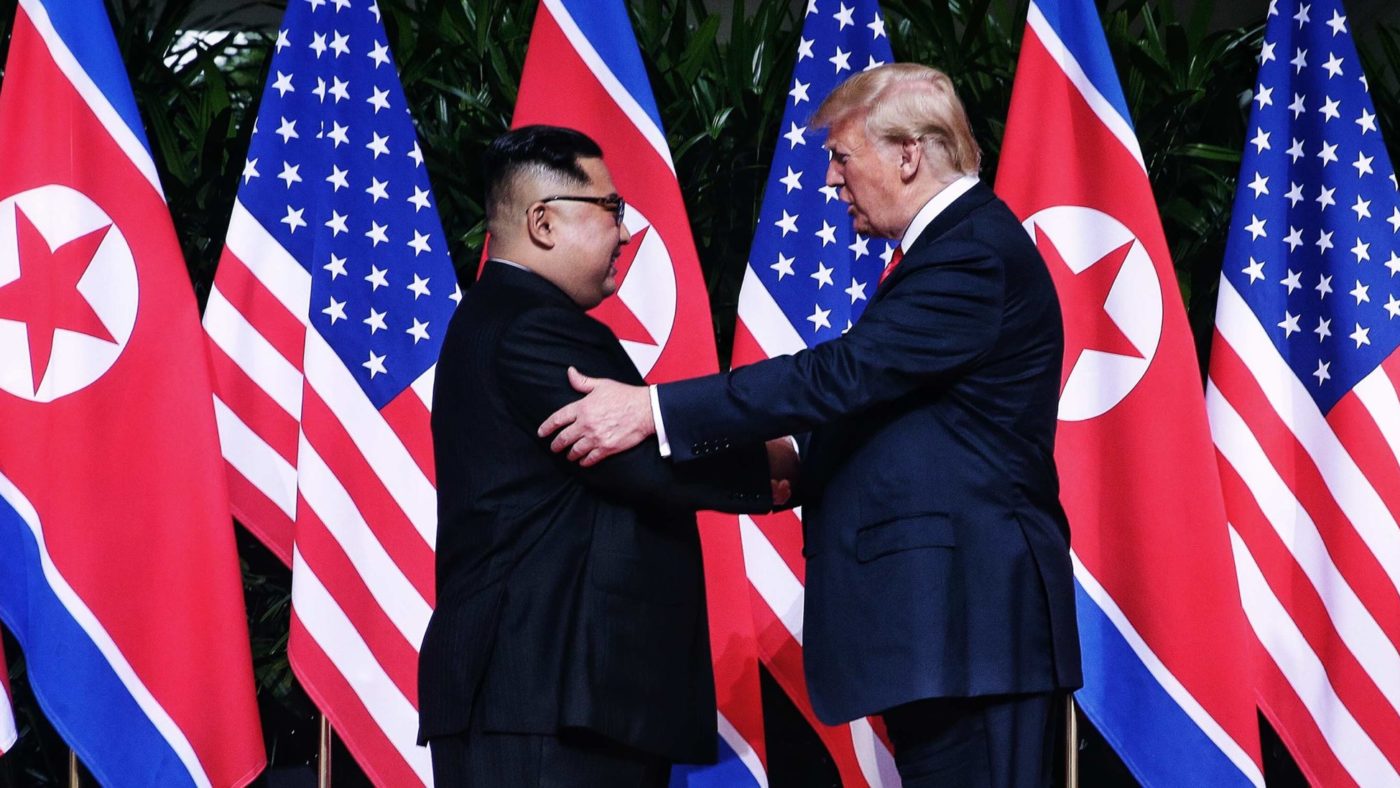On Thursday, Vladimir Putin welcomed everyone to Russia for a “splendid football feast”. He then sat down with Mohammad Bin Salman, the crown prince of Saudi Arabia, to watch 11 men from a murderous kleptocracy thrash 11 men from a murderous theocracy 5-0. It all added to a niggling sense that the bad guys are winning.
It was a feeling that had been growing as the week went on, starting with the fallout from a depressingly disharmonious G7 meeting last weekend – the sort of Western infighting that puts a smile on the faces of the world’s villains.
Then came the Singapore summit. The cosiness between Donald Trump and Kim Jong-Un would have been jaw-dropping in any context. That it came just days after the US president thumbed his nose at America’s closest allies made it all the more dumbfounding.
The problem with the summit wasn’t just that it was little more than showmanship diplomacy, with Trump tweeting afterwards that “there is no longer a nuclear threat from North Korea” in spite of the fact that he exacted no meaningful concessions from Kim. It was also that the President opted for sycophantic fawning, not business-like respect, in his dealings with the head of the most brutal regime in the world.
Speaking after the summit, Trump said: “[Kim’s] country does love him. His people, you see the fervour. They have a great fervour.” On Friday he claimed to have “really hit it off” with Kim, adding: “He’s the head of a country and I mean he is the strong head… He speaks and his people sit up at attention. I want my people to do the same.”
Trump himself is not retreating from the world stage – he enjoys the limelight too much for that – but his conduct steadily debases the values of liberal democracy that the leader of the free world is supposed to stick up for, and therefore constitutes a retreat of a deeper kind.
America’s advocacy for, and protection of, those values hasn’t been perfect, but, as Oliver Kamm argued on CapX this week, “it binds together what would otherwise be an anarchic global system”. The result has been a world that is freer, richer and safer. Kamm rightly concludes that Trump’s approach is, by contrast, “a danger to world peace, an abnegation of US obligations and a betrayal of the ideals of the Republic”.
To get a clearer picture of the problem with Trump’s handling of Kim, compare his comments with what Nixon said on his 1972 trip to China, a high-profile diplomatic event not dissimilar to the meeting in Singapore.
Speaking in Beijing’s Great Hall of the People, Nixon described engagement with China as an effort to “build a new world order in which nations and peoples with different systems and different values can live together in peace, respecting one another while disagreeing with one another, letting history rather than the battlefield be the judge of their different ideas”.
These are the words of someone confident he is on the right side of that battle of ideas as well as on the right side of history.
Recently, not just in America but across the West, a lack of confidence about the latter has led some to wonder about the former.
Trump and far-right European leaders – including Marine le Pen in France and Italy’s new Deputy Prime Minister Matteo Salvini – are particularly taken by Putin. Where they see chaos in their own countries, they find order in Russia.
Yet the irony of all this fawning over strongmen is that their strength is illusory. Regimes that rule through fear and diktat are deceptively fragile. Democracy may be messy, but it is self-correcting and durable.
The World Cup and the Singapore summit are sanitising propaganda opportunities for Putin and Kim respectively. But they aren’t more than that. And they wouldn’t be nearly as troubling were it not for the lack of Western leadership.
So next time you worry that the enemies of liberal democracy are winning, remember that their alternative systems go against the grain not just of human history, but human nature.
This article is taken from CapX’s Weekly Briefing email. Sign up here.


